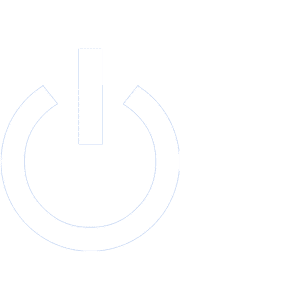Wofür brauche ich eine Apostille und was ist das?
Was ist eine Haager Apostille?
Die Apostille, auch bekannt als Haager Apostille, ist eine Beglaubigungsform im internationalen Urkundenverkehr. Sie wird im Rechtsverkehr zwischen u.g. Staaten verwendet als Befreiung ausländischer öffentlicher Urkunden von der Legalisation.

Haager Apostille der Seychellen
Sie bestätigt die Echtheit der Unterschrift, die Eigenschaft, in welcher der Unterzeichner gehandelt hat, und gegebenenfalls die Echtheit des Siegels oder Stempels, mit dem die Urkunde versehen ist.
Die Vereinfachung des Rechtsverkehrs, die mit dem Haager Übereinkommen erreicht werden konnte, trägt heute wesentlich zur Entwicklung der Globalisierung bei, weil sie internationale Rechtswege rasch und unbürokratisch ermöglicht.
Die Apostille wird auf öffentliche Urkunden gesetzt. Welche Urkunden als öffentliche Urkunden anzusehen sind, regelt Artikel 1 des Übereinkommens, wobei jeweils innerstaatliches Recht der Ausstellungsbehörde zur Anwendung kommt. Die Apostille ist mittels eines Stempels (Stampiglie) in der Form eines Quadrates mit einer Seitenlänge von mindestens neun Zentimetern darzustellen. Sie kann in der Amtssprache der ausstellenden Behörde ausgefüllt sein. Die Überschrift „Apostille (Convention de La Haye du 5 octobre 1961)“ ist zwingend in französischer Sprache vorgesehen.
Sollten Sie eine Apostille benötigen oder eine Beglaubigte Urkunde/Dokumente von einem Notar auf den Seychellen, bieten wir beides im Online Shop an.
Dies sind die Mitglieder des Haager Übereinkommens für die Haager Apostille:
- Albanien
- Andorra
- Antigua und Barbuda
- Argentinien
- Armenien
- Australien
- Bahamas
- Bahrain
- Barbados
- Belarus
- Belgien
- Belize
- Bolivien
- Bosnien-Herzegowina
- Botsuana
- Brasilien
- Brunei Darussalam
- Bulgarien
- Chile
- China (nur für Urkunden aus den Sonderverwaltungsregionen Hongkong und Macau)
- Cookinseln
- Costa Rica
- Dänemark (außer Grönland und Färöer)
- Dominica
- Ecuador
- El Salvador
- Estland
- Eswatini
- Fidschi
- Finnland
- Frankreich
- Georgien
- Grenada
- Griechenland
- Guatemala
- Guyana
- Honduras
- Irland
- Island
- Israel
- Italien
- Japan
- Kap Verde
- Kasachstan
- Kolumbien
- Kroatien
- Lesotho
- Lettland
- Liechtenstein
- Litauen
- Luxemburg
- Malawi
- Malta
- Marshallinseln
- Mauritius
- Mexiko
- Monaco
- Montenegro
- Namibia
- Neuseeland (ohne Tokelau)
- Nicaragua
- Niederlande (auch für Aruba, Curacao, Sint Maarten und den karibischen Landesteil, Bonaire, Sint Eustatius und Saba)
- Niue
- Nordmazedonien
- Norwegen
- Oman
- Österreich
- Panama
- Peru
- Polen
- Portugal
- Rumänien
- Russische Föderation
- Samoa
- San Marino
- Sao Tome und Principe
- Schweden
- Schweiz
- Serbien
- Seychellen
- Slowakei
- Slowenien
- Spanien
- St. Kitts und Nevis
- St. Lucia
- St. Vincent und die Grenadinen
- Südafrika
- Südkorea (Republik Korea)
- Suriname
- Swasiland (siehe Eswatini)
- Tonga
- Trinidad und Tobago
- Tschechische Republik
- Türkei
- Ukraine
- Ungarn
- Uruguay
- Vanuatu
- Venezuela
- Vereinigte Staaten
- Vereinigtes Königreich (auch für Anguilla, Bermuda, Caymaninseln, Falklandinseln, Gibraltar, Guernsey, Isle of Man, Jersey, Britische Jungferninseln, Montserrat, Sankt Helena, Turks- und Caicosinseln)
- Zypern
Mehr und weitere Information finden Sie in unserem Lexikon/Glossar oder im IBC Act.



 offshore.sc
offshore.sc